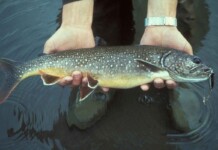Roughly 142 million Americans take to the nation’s waterways on boats each year—and for good reason. Recent research has shown that people experience emotional, behavioral and psychological benefits from being near, in, on, or under water.
One of the leading researchers on the health benefits of participating in activities like boating is Dr. Wallace J. Nichols, a marine biologist and author of “Blue Mind”, the bestselling book on the scientific connection between water and happiness.
“The effect of boating on our lives, and its fundamental connection to our planet’s waters, are well documented from an economic, ecological and educational perspective,” said Dr. Nichols. “But, the relationship of a boat to our health has been largely overlooked.”
We now know, thanks to science, that the mere sight and sound of natural waters promotes wellness by lowering cortisol, increasing serotonin and inducing relaxation.
RELATED: Got Kidney Stones? Ride a Roller Coaster, Says Study
For the first time, Dr. Nichols is exploring how being on a boat benefits overall health.
In contrast to the aquatic state of relaxation, “Red Mind” is a state of mind described as an “edgy high, characterized by stress, anxiety and fear.” While stressors such as money and work influence people, there are new stressors associated with urbanization and a constant tether to technology that offer little respite from the demands of today’s world. An antidote to “Red Mind” is “Blue Mind”—a mildly meditative state characterized by calm, peacefulness, unity, and a sense of general happiness associated with the water.
“I have done a tremendous amount of research on the benefits of being near, in, on, or under water,” said Dr. Nichols. “The best place to begin is by first considering everything that’s being taken away when we step aboard a boat—traffic noise, televisions, offices—they all fade away. The boat is the greatest technology ever invented to access and explore a vast world of ‘Blue Mind’ benefits and escape the ‘Red Mind’ mode of an anxious and distracted life on land—although its application is understudied and under-prescribed.”
CHECK OUT: Woman Makes Drug-free Patches That Treat Nausea, Cramps, Vertigo, Hangovers – And Even Car Sick Pets
Boating triggers a restful state. It provides the means to get outside of daily routines, allowing our brains to reset, think beyond our current circumstances, and connect to something bigger than ourselves. Being on the water on a boat promotes physiological and psychological changes spanning health and wellness, awe and wonder, creativity and play, and happiness and relaxation:
- Boating resets our brain: With Americans taking less vacation, more than ever people need to restore their minds. Being on the water has been shown to offer relaxation, restoration and happiness, along with the added benefits of exercise, social time, and a connection with nature.
- Boating is meditative: Doing absolutely nothing is a lost art in our society, but is more important than ever as time spent in nature, especially when it involves water, is a valuable way to offset the stresses of living and working in modern contexts.
- Boating is awe-inspiring: Awe is an important emotion that helps us get outside ourselves and is uniquely tied to meaning, purpose, compassion and self-worth. Water is one of the best sources of wonder, and boats of all types allow us to experience this awe.
- Boating promotes play and induces creativity: Stress is shown to inhibit creativity. One of the best remedies is play, which triggers the release of endorphins. Watersports and aquatic activities are a source of play, ushering in the body’s natural feel-good chemicals.
- Boating appeals to our senses: The mere sight of water can induce a flood of neurochemicals that promote wellness. A lifelong relationship to water, facilitated through boating, brings vast cognitive, emotional, psychological, social and spiritual benefits for people of all ages and abilities.
Dr. Wallace “J” Nichols is a scientist, wild water advocate and New York Times best-selling author of “Blue Mind: The Surprising Science That Shows How Being Near, In, On, or Underwater Can Make You Happier, Healthier, More Connected and Better at What You Do.” He is a research associate at the California Academy of Sciences and co-founder of Ocean Revolution, SEEtheWild, Grupo Tortuguero, and Blue Mind Life. He now resides on California’s SlowCoast with his wife, two daughters and a pod of dogs, cats, chickens, and wildlife.
If This Story Floats Your Boat, Be Sure And Share It With Your Friends




















